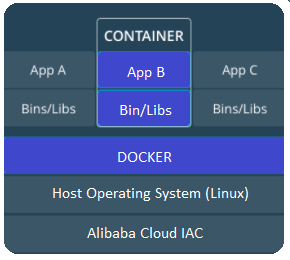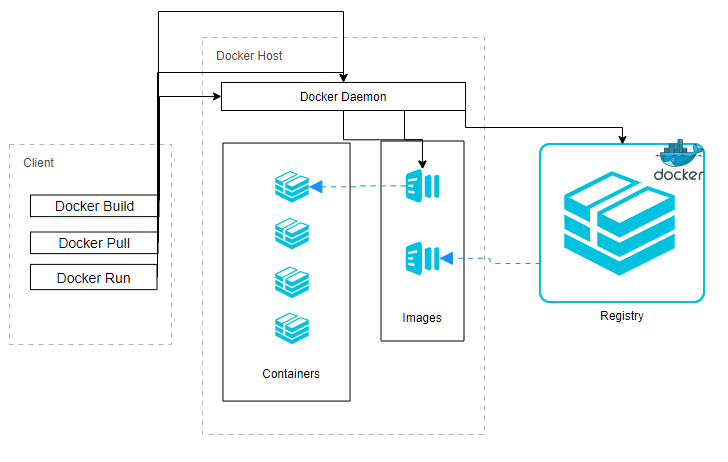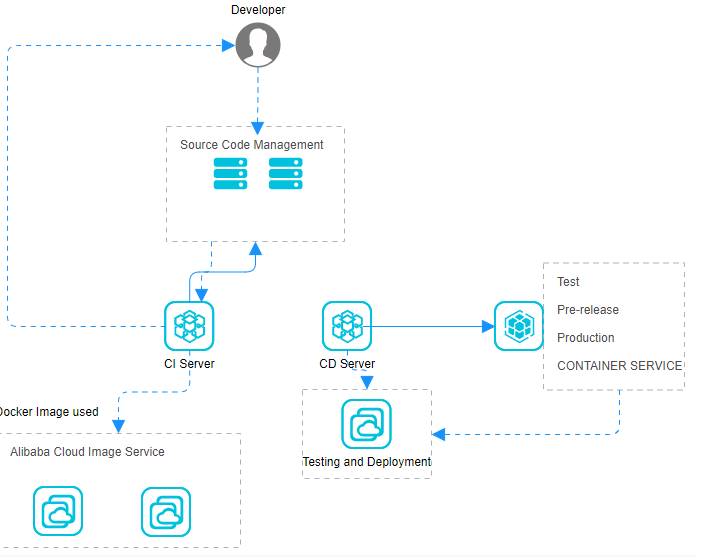By Shantanu Kaushik
Cloud computing has brought about an upgrade and a paradigm shift over the traditional methods of hosting, deployment, and usage of applications. Since the dawn of DevOps, Alibaba Cloud has continued its development phase to keep up with the industry practices and trends and to set new industry standards and practices.
The DevOps lifecycle depends on automation alongside good infrastructure and microservices. These microservices are a collection of services that can be configured, reused, and independently maintained. Here comes the need for a container service, as it can leverage the true potential of microservices to provide a more scalable and reliable system.
Alibaba Cloud introduced its container service that provides an option to use either Docker or Kubernetes to manage and maintain your containerized applications.

Using IAC as Back-end, with Docker on Alibaba Cloud
The Container Service is a high-performance engine that is highly scalable. It sources a simplified architecture to maintain container management clusters. With the Alibaba Cloud container service, you get the integrated support of virtualization, network, security, and storage. This creates the most optimal solution for you to deploy your containerized applications on the cloud. With microservices support, the container service is the most dependable resource for you on the cloud.
DevOps and Alibaba Cloud have grown to define many industry practices and set multiple standards of operations and delivery. In this article, we will discuss, what Docker is, how it works with Alibaba Cloud, and how you can utilize it. Let's start with a representation of how Docker works:

Let's take a look at a different visualization of Docker with Alibaba Cloud's container service and leverage it for high performance and reliability. This demonstrates how a developer can utilize the container service alongside the IAC resources and deploy it using a Docker image.

Docker is an open-source platform for administrators and developers that was built by developers. It has been designed to build, run, and share containerized applications.
Docker uses containers. It is a highly supported and lightweight tool that gets your work done with ease. Why should I use Docker instead of Kubernetes? We will answer that question, but first:
Let's discuss the basic advantages of using containers:
Docker swarm is used to cluster, schedule, and orchestrate environments that are running on multiple containers with Docker. If you are not running a virtual machine, you don't need to depend on the hypervisor, all you need to do is implement Docker over the Infrastructure and Operating system that are provided by Alibaba Cloud and you are good to go.
You can manually install Docker by following the commands below. Make sure that you are already connected to an ECS instance.
yum update
yum install epel -release -y
yum clean all
yum list
yum install docker-io -y
systemctl start dockerThis will install Docker by using the YUM repository. After you finish installing Docker, check your installation results by typing in this command:
docker infoYou can follow this step-by-step guide on the Alibaba Cloud website to set up the Docker service. You can also check another write-up that shows how to create an Alibaba Cloud Container service application using Docker Swarm.
This debate has been in the industry for a very long time The very first thing you need to remember is Kubernetes and Docker are not alternative solutions to each other.
Both leverage the container service and are used for similar operations, like configuration and management of containerized applications, but they vary in their core functionality. There is a helpful comparison chart below:
| Kubernetes | Docker |
|---|---|
| Kubernetes can work on Docker and on the Alibaba Cloud Container service | Docker works on Docker Swarm, their in-house developed orchestration service. Docker also works with Alibaba Cloud Container service. |
| Supports microservices | Supports microservices |
| Runs across a cluster | Runs across a single node |
| Much more extensive in its approach | Built for developers to have a solution that gives functionality over infrastructure. |
| Massive industry support has led to multiple organizations opting for Kubernetes. | Mature tech that has gone through a lot of evolution |
Both Kubernetes and Docker are supported on Alibaba Cloud. You should choose the tool best suited to your DevOps solution. It depends on the size of your management team, the expense ratio you would want to maintain, and how big the organization you are catering to/developing for is.
Both Kubernetes and Docker will get the job done since both are supported and ready applications that leverage the backend services to the fullest. The only requirement here is that you configure your DevOps solution in a way that leverages the true potential of infrastructure provided by Alibaba Cloud.
1. API Gateway – An Introduction
We will discuss the API Gateway and start a 3-part series on API Gateway.
2. Using Web+ (Web App Service) with Alibaba Cloud to Deploy Applications
We will take real-world scenarios and dive-deep into how to utilize the Alibaba Cloud web app service to maximize application capabilities.
The views expressed herein are for reference only and don't necessarily represent the official views of Alibaba Cloud.
Technology Reimagined: Highlights of the First Day of the Apsara Conference 2020

2,593 posts | 791 followers
FollowAlibaba Clouder - May 23, 2018
Alibaba Clouder - May 25, 2018
Alibaba Clouder - August 9, 2018
Farruh - January 12, 2024
JDP - July 31, 2020
Alibaba Clouder - July 2, 2020

2,593 posts | 791 followers
Follow Alibaba Cloud Flow
Alibaba Cloud Flow
An enterprise-level continuous delivery tool.
Learn More DevOps Solution
DevOps Solution
Accelerate software development and delivery by integrating DevOps with the cloud
Learn More Microservices Engine (MSE)
Microservices Engine (MSE)
MSE provides a fully managed registration and configuration center, and gateway and microservices governance capabilities.
Learn More ACK One
ACK One
Provides a control plane to allow users to manage Kubernetes clusters that run based on different infrastructure resources
Learn MoreMore Posts by Alibaba Clouder